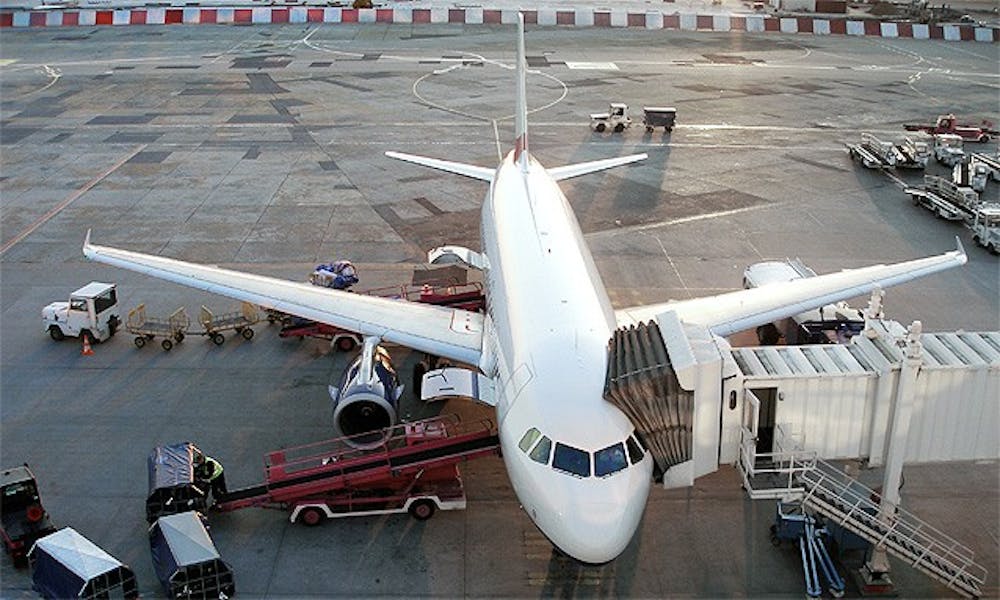When students fly home for Turkey Day, they may have to show airport security officials more than just the contents of their bags.
Thanksgiving, one of the busiest times for air travel, approaches in conjunction with the national implementation of new full-body scanning technology. The Transportation Security Administration first began using the Advanced Imaging Technology in 2007 but decided to widely expand its use after a Nigerian man attempted to detonate a bomb hidden in his underwear aboard a flight over Detroit on Dec. 25 last year. The scanners reveal a passenger’s unclothed body to a TSA official, reducing the chance that a terrorist could hide explosives. But some people, including Duke students, have expressed discomfort with what they consider an invasion of their privacy.
“These aren’t X-rays, they are essentially images of the naked body,” said Sharif Labban, a freshman who will be traveling from Raleigh/Durham International Airport, where the scanners will be in place. “I understand they are for the sake of national defense, but I do not see the distinction from pornography.”
The TSA stresses that the images are anonymous and claims on its website that “advanced imaging technology cannot store, print, transmit or save the image, and the image is automatically deleted from the system after it is cleared by the remotely located security officer.”
But The Washington Post reported last week that United States Marshals saved 35,000 images from a similar scanner at the Florida Federal Courthouse that were then shared with the media after a Freedom of Information Act request.
“These images leave little to the imagination,” freshman Nancy Anderson said. “The problem is that people don’t know how much of their body is being shown. If they did, it would make anyone wary of airport security.”
The scans are not mandatory and passengers can choose an “enhanced pat-down” instead—said to be more time consuming than the scanners and more thorough than the basic pat-downs used before the Christmas Day bombing scare. Those who oppose the scanners hope to create long, inconvenient lines at airports nationwide by opting for the frisk instead of the scan on Nov. 24, which they have deemed “National Opt-Out Day.”
David Schanzer, associate professor of the practice for public policy, believes the new system is not the right course of action.
“I think you can get more security for the buck by investing in intelligence activities, more by screening people more thoroughly when they apply for visas as well as having behavioral screening in the airport,” he said. “[These scanners] only address a very narrow aspect of the general threats airports face.”
According to the TSA, the government used federal stimulus funds to buy 450 AIT units, to be placed in major airports across the country. But Schanzer said he believes that the $2.5 billion being spent creating and maintaining the units is money wasted because air travelers will find ways to circumvent the technology in time. The best the scanners can do, he said, is act as a deterrent.
The TSA has never in its history prevented a terrorist attack through its security measures, according to CBS news. Sophomore Rohan Taneja, head of the Policy Center for Defense and Diplomacy at the Roosevelt Institute, said he believes the legality of these scanners and pat-downs has already been established and that the marginal benefit of intensifying the scanners to “get the job done” supersedes the discomfort some airline passengers may feel.
“Terrorist groups now have more access to higher technology and this is a step in the right direction to combating that,” he said. “We won’t know how effective the new measures are until they are implemented but the need for change is clear in the ineffectiveness of our current system.”
RDU Spokeswoman Mindy Hamlin said some passengers comment on the scanners and a few have complained.
“But compared to the massive of number of people that go through our doors everyday, it is nothing,” she said.
According to U.S. Gallup Polls, 4 out of 5 Americans support the use of the scanners despite the amount of people that vocally express distaste for the technology.
“At the end of the day, it is still a matter of national security and I would rather endure one awkward moment for the ability to feel safer as I fly,” Anderson said.
Get The Chronicle straight to your inbox
Signup for our weekly newsletter. Cancel at any time.

